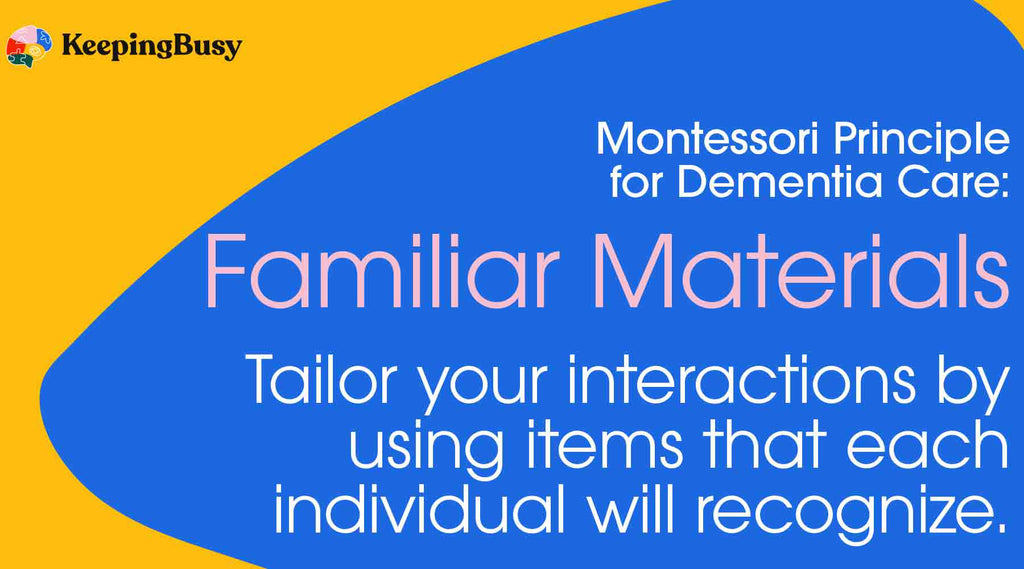
This is one in a series of posts describing the ten Montessori Principles for dementia care. Click here for the first post in the series
An activity is more likely to be successful and more meaningful to someone with Alzheimer's or dementia if it uses materials that are familiar to that person. People are more comfortable around familiar items and will often have an automatic, pleasurable response. I met someone in a memory care facility who had been a carpenter for most of his life. Just by bringing in some hand tools we had a great time together handling the tools and remembering stories. That would have been a meaningless activity (or certainly not as successful) for someone who did not work with those tools for so much of their life. Someone used to knitting or sewing would probably enjoy an activity involving knitting needles, yarn or thread.
The concept of familiar materials applies in a more general sense as well. A puzzle activity that uses a map of Canada is much more likely to be successful to someone with dementia who has lived their life in Canada than would be a puzzle using a map of Europe, for example.
The more familiar the materials are to the person, the more they will "connect" with the items and the more opportunity there is for reminiscing and having a successful and meaningful dementia activity.




